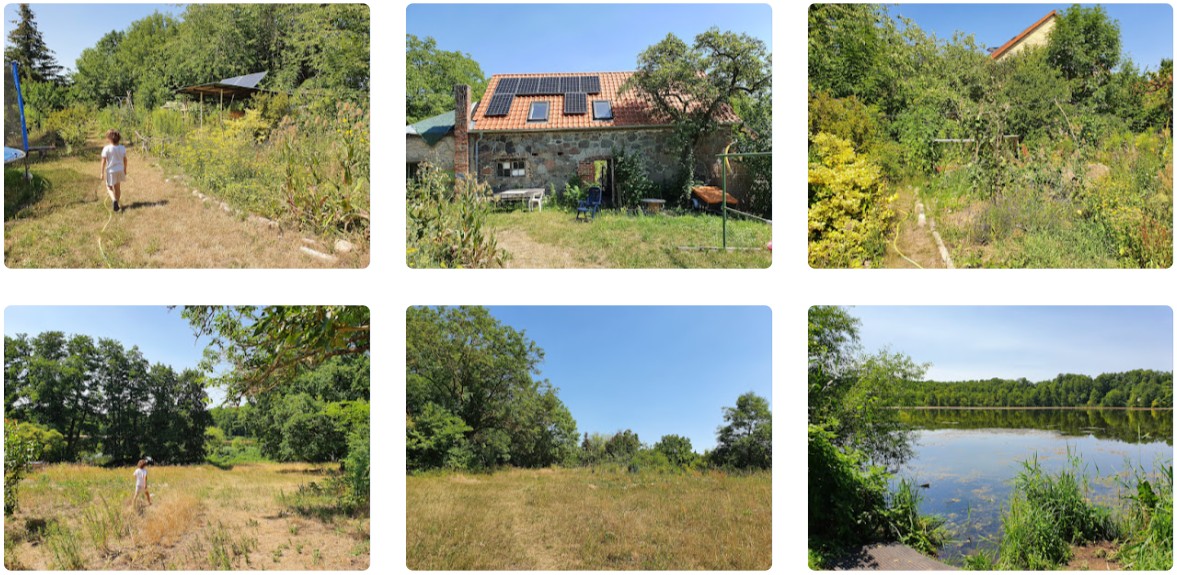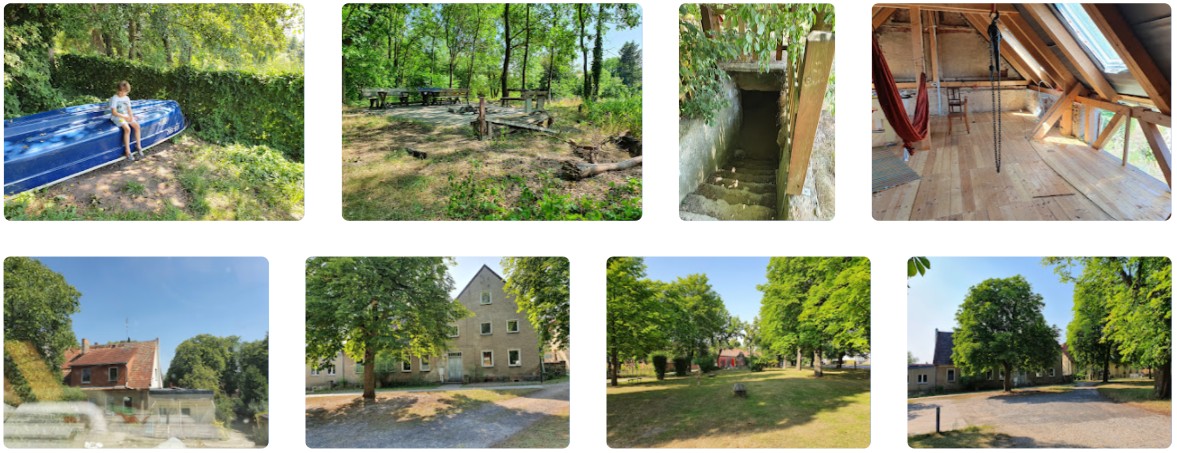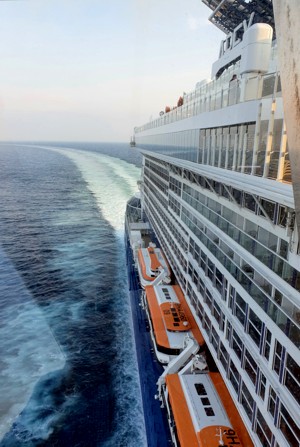As in Britain during, during WW2, many Berliners were allowed allotments, on previously public land, on which they could grow vegetables and fruit. As in Britain, many of these have never been surrendered. Around Berlin, many of these are well out into the country-side, requiring a long bike ride, so camping overnight was often required and this led to the construction of shelters on the sites. Under the DDR (East Germany) these needed to be primitive, without services, to prevent them becoming permanent homes. But people found ways around this, so that many are actually diminutive but comfortable country-houses or 'datsche' (after the Russian dacha).

A few years ago Guido and Emily and several other couples purchased a large dilapidated building in the countryside at Steinhöfel in Brandenburg. And in the tradition of the datsche they have progressively made it more and more habitable, ripping out the guts and reinstalling floors and walls and so on.

There is now a common kitchen and a big living area and each couple has constructed their own apartment. They have been technologically innovative. There is underfloor temperature control, using a heat pump, and many other improvements.
Having achieved this level of comfort, they recently commenced on repairing the various out-buildings, reroofing the old barn.
It's a home away from home that really came into its own during the Covid pandemic. Yet it retains a datsche-country-farm-like ambiance.
In return for its use, they have agree to maintain an area of public land, right down to the lake, behind their property, giving them a very large garden on which to ramble, pick berries and keep bees, among other things.

Leaving Berlin, we retraced our steps to Willy Brandt (airport) and got to the port in Amsterdam just in time to be hurried on board. Due to the tide the ship was leaving early. Late arrivals would be bussed to a dock down river.

